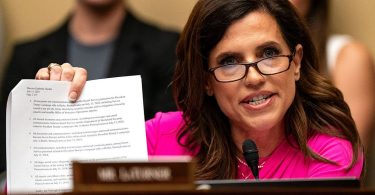Gen Z adults are more progressive, less religious and more open-minded about their sexuality than other generations.
A new poll demonstrates that younger Americans are decidedly more progressive, less religious, and more likely to describe themselves as LGBTQ than other generations.
In fact, Generation Z adults in the survey were more likely to identify as part of the LGBTQ community than to say they were Republicans.
The poll, produced by Public Religion Research Institute (PRRI) and published by Axios earlier this week, was conducted in late summer of last year, questioning more than 6,600 Americans across the entirety of the United States.
Respondents were asked a variety of questions regarding their identities, including their views on religion, politics and their sexuality. Among all adults who took part in the poll, just 10 percent said they identified as LGBTQ. Among Gen Z respondents, however — defined as adults who were born after the year 1997 — that rate nearly tripled, with 28 percent saying they were part of the LGBTQ community.
Meanwhile, on the question of political affiliation, just over a quarter of adults total (27 percent) said they were Republican voters. But among Gen Z voters, the rate was even lower, with only one in five (21 percent) saying the same.
The poll demonstrates that Gen Z voters are more likely to be LGBTQ than to support a Republican candidate for office.
Gen Z voters also expressed less religiosity than Americans overall in the survey. According to the report, 33 percent of Gen Z respondents said they were religiously unaffiliated, versus 27 percent of adults overall. Only Millennials expressed less affiliation with religion than Gen Z’ers, with 36 percent of that generation defining themselves that way.
On political ideology, the poll found that Gen Z voters were more progressive than all other generations, with 43 percent describing themselves as liberal, 28 percent as moderate and 28 percent as conservative — versus 31 percent of adults overall who said they are liberal, 34 percent moderate and 33 percent conservative.
On which party they supported, a plurality of Gen Z’ers said they were either independent or unsure of what party they supported, with 43 percent expressing one of those two views — a higher rate of those combined options than any other generation besides Millennials, among whom 44 percent said the same.
The data appears to demonstrate that Gen Z voters are more open-minded than adults in general within the U.S.
“Clearly, Gen Z does not like to be labeled, and they’re not necessarily wanting to hang their hat with a particular political party these days,” PRRI CEO Melissa Deckman told Axios.
The poll suggests that it’s possible Gen Z voters could tilt the scales of the 2024 elections in Democrats’ favor, if that party appeals to them enough with progressive ideals and policy proposals. Around 8 million new Gen Z voters will be eligible to vote for the first time this year, and about 40 million adults from that generation will be able to vote in November.
However, convincing young adults to vote could be challenging, other polls have suggested, as enthusiasm for the likely Democratic and Republican presidential contenders — President Joe Biden and former President Donald Trump, respectively — is low.The voter participation rate among younger voters is indeed expected to be lower than the last election cycle. According to a Harvard Gazette survey from December, only 49 percent of Americans aged 18-29 will “definitely” vote this year — a drop from 57 percent who said the same thing in late 2019, in the run-up to the 2020 presidential election.





